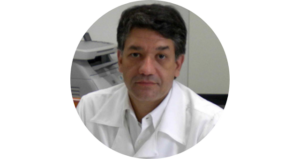
Residency Period: 03/01/2013 to 02/28/2014
Resident professor at IEAT, Marco Aurélio Romano-Silva graduated in Medicine from the Federal University of Minas Gerais (UFMG) in 1990, completed his doctorate in Biochemistry, also from UFMG in 1994. He obtained the Title of Specialist in Psychiatry from the Brazilian Association of Psychiatry (2000) and Habilitation in Psychiatry by the Faculty of Medicine of USP (2003). Former Associate Professor at the Department of Pharmacology at UFMG. Currently, he is Professor of Psychiatry. He works in the area of Neuroscience, with emphasis on Psychiatry, Molecular Medicine, Neuropsychopharmacology and Molecular Genetics. He is Coordinator of the INCT of Molecular Medicine.
NEUROMODULATION THROUGHOUT THE LIFE CYCLE
The project aims to articulate the formation of a collaborative network at UFMG for the study and application of neuromodulation in normal and pathological conditions. In order to achieve this objective, the project intends to: a) identify groups at UFMG, in different areas of knowledge, who possess skills (know-how and/or equipment) applicable to the investigation of neuromodulatory phenomena and interventions; b) define a problem as the focus of action (eg Attention Deficit Hyperactivity Disorder – ADHD), in order to take advantage of the skills identified in “a” and converge efforts towards common goals; c) carry out preliminary experiments and/or interventions as a “proof of principle” and test the network’s capacity for interaction; d) prepare a funding proposal for the project(s) of the Neuromodulation Research Network formed, for submission to funding agencies (national and international).
At the end of the project, the following goals are expected to be achieved: the development of a network aimed at encouraging and cooperating in neuromodulation studies; the elaboration of a cooperative project for submission to development agencies and fundraising; the production of research protocols; the formation of human resources capable of transiting through the different areas and working cooperatively and the strengthening and integration of the graduate programs involved in the proposal.